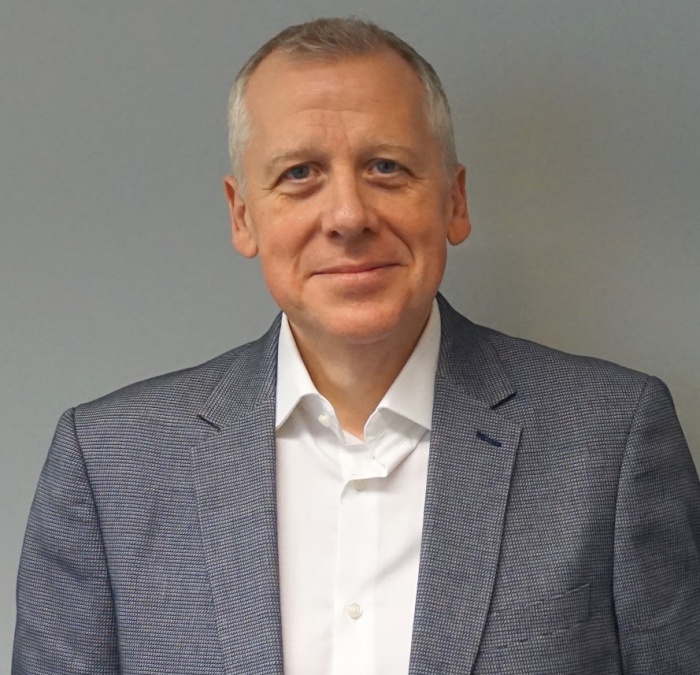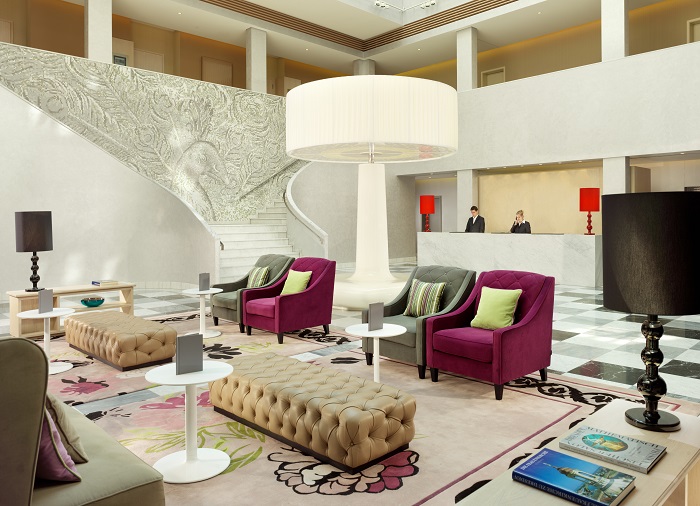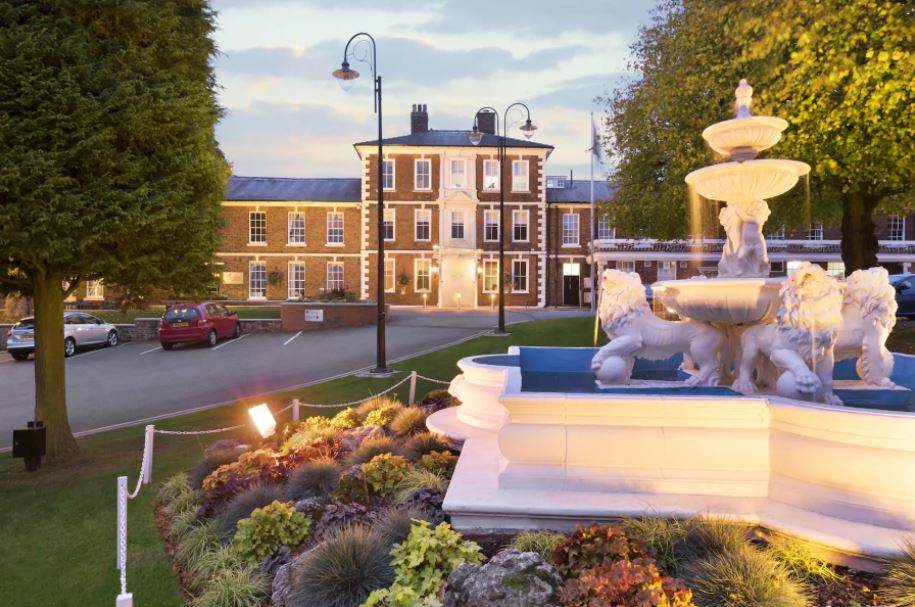
Breaking Travel News interview: Patrick Divall, vice president, Western Europe, Wyndham Hotel Group
Something of a stately presence on the global hospitality scene, Wyndham Worldwide has been undergoing a significant reorganisation over the past 18 months.
The giant is currently splitting itself in half to create two separate, publicly traded companies.
Wyndham Hotel Group, with more than 8,100-hotels and based in Parsippany, New Jersey, will become a standalone hotel company, while Wyndham Vacation Ownership will move to Florida to become the largest publicly traded timeshare company.
At the same time, Wyndham Hotel Group is itself expanding, having just this week announced a $2 billion deal to acquire La Quinta, an owner, operator, and franchisor with nearly 900 properties under management in the United States and Latin America.
Not bad for a company with a sometimes-stuffy reputation.
All this means there is plenty to discuss with Patrick Divall, regional vice president, Western Europe , Wyndham Hotel Group, who reveals things are no less exciting here.
He explains: “As a company, we have a high level of openings; on average we open a new hotel every day, worldwide.
“In Europe, Middle East, and Africa, we already have over 30 hotels in the pipeline for 2018, while in reality we will likely have more.
“Among the areas that excite us, looking east, Turkey is one, Armenia, and Russia – there are lot of great opportunities there.
“But we tend not to focus by country, more by each destination within a country.
“For example, we already have hotels in The Netherlands, but we are just about to open a new property in Rotterdam.
“This is our first property in the city; a really cool place that we wished we had had a presence in, and now we have been able to do that.
“For us, it is not a blanket approach – ‘oh, here’s a country, we want to get all the hotels in it we can’ – it is centred on destinations within a country as well.”
Divall, who joined the company in late 2016, was appointed in part to grow recognition of Wyndham in Europe, with the company having been regarded as a largely North American concern up until now.
He adds: “My role, as it exists now, was not there before; we had a lot more people in the New Jersey office , and it was a deliberate strategy to move people closer to the properties – this is where they can make the difference.
“We have new offices in London, Dubai, Istanbul, and Gurgaon in India, where we drive the whole of our EMEA strategy.
“Wyndham has opportunities to increase our profile in Europe, and my role is part of that.
“So far, the bulk of our hotels have been in the United Stated, and that is where our DNA comes from.
“But we have hugely grown in China now, and I think Europe, Middle East, and Africa, where we have 500 hotels, have reached the critical mass to really grow.
“In some markets, however, we remain a best kept secret, and our aim is to really stand out now.”

Hyperion Hotel Dresden has been among the first to join the new Trademark Collection
One way the company is seeking to do this is through the launch of the new Trademark Collection - which has already welcomed 50 hotels across Germany, Switzerland and Austria following its launch last year.
The industry’s first soft-branded collection of upper-midscale and above hotels, Divall explains hotels are offered an unusual chance to maintain their independent spirit.
“We know that there are certain owners who are fiercely independent, fiercely proud, of what they have created, but they may operate in markets where they simply cannot get to customers unless they do that through third parties,” he explains.
“We are a huge supporter of third parties; we have to work with them, and certainly not in different directions.
“Our central reservation system is very powerful, and it drives business to hotels, while we also give them marketing and sales support.
“But beyond that, the brand standards are almost nothing – because actually it is about having a hotel that of a good enough quality.
“We see a clear market here for independent hoteliers who want to gain the benefits of a powerful central distribution system, but don’t want a strong brand attached.”
Ramada is one of two Wyndham brands currently operating in the UK
But does there come a point when there are simply too many brands in the market?
With the global hotel giants all rolling out new flags seemingly on a monthly basis, are we at the point where even mature destinations cannot support more hotels?
“Yes, there is still space; we have 20 brands, three of which are new since I joined the company,” Divall continues.
“Two distinct things are happening: firstly, brands are being better defined, not just at Wyndham, but across the market.
“Hospitality companies are getting better at identifying who is our market, and what does our brand stand for.
“We now know very clearly what brands appeal to what customers, we know how we should be positioning that brand.
“In the past, maybe ten or more years ago, that might not have been the case, it would have been hard to tell one hotel from another hotel – it seemed somebody just chose a name to put over the door.
“On top of that, brands are in different countries.
“In the UK for example, Wyndham has two brands represented: Ramada and Days Inn.
“This means we sit in the mid-scale and the economy segment.
“In the UK we think there is space for two, maybe three more of our brands, though obviously not for 20.”
An example from the Wyndham portfolio is Super 8.
While virtually unknown here in the UK and Europe, it is a leafing presence in Chinese hospitality.
“We are happy to keep expanding our brands, in order to suit new customers, the middle class, as their numbers grow.
“For lots of these travellers, it will be primarily local, for example China.
“We have over 1,000 Super 8 hotels there, which are really aimed at the domestic traveller.
“There is also a whole new level of customer, in China and elsewhere, that would not have stayed in a hotel before, but as brands develop, find that opportunity is now open to them.
“Even a generation ago for UK domestic travel, people would have travelled somewhere and back on the same day, whereas now, there are value brands, Days Inn being one of them, meaning people can stay overnight.
“With the exponential growth of hotels worldwide there could be worries there are never enough people to fill them up, but we know that demand still outstrips supply in a lot of markets,” Divall adds.
Having been with the company for a little over a year, Divall is also optimistic for the future of the newly reorganised Wyndham Hotel Group.
“Every company is great for different reasons and Wyndham is no exception.
“I would almost describe it as entrepreneurial; while we are a huge company, we do not have many layers, it is very relaxed, and everybody is able to give their view.
“This means everybody is able to work together for the good of the customer and for the hotels.
“It is a very open culture, a very flexible culture, and that drives innovation.
“If you create a culture where it does not matter who you are in the company, but you are able to approach and talk about things, suggest a better way to do things, then that is hugely exciting.”
More Information
Driving the democratisation of travel, Wyndham Hotel Group is elevating the experience of the everyday traveller, changing the game so every traveller – no matter how much they spend or how they like to travel – has an extraordinary experience.
The company’s global portfolio consists of more than 8,100 hotels and over 708,500 rooms in 78 countries.
Find out more on the official website.


